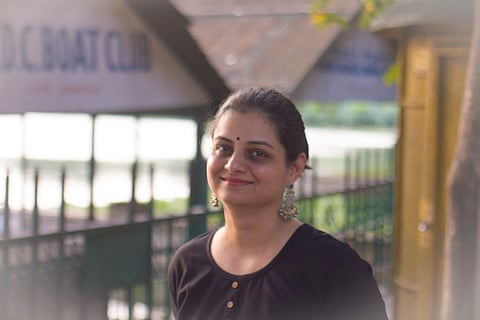

Though poems are short and often sweet, they express a lot more between the line, believes Poornima Laxmeshwar, a poet from Bengaluru. Her poems have been published in international magazines and websites like Jaggery Lit, Cha: An Asian Literary Journal, Muse India and many others. She recalls, "I think my first publication was in the prestigious e-journal Muse India. I had sent them a few poems and they actually published them. This gave me a lot of encouragement and happiness. Gradually, I started writing more and getting them published in other famous literary websites and e-journals like Asian Cha, Jaggery Lit and so on. Getting published gives validation to your work." But she also believes that if your poem is getting rejected, then there is something not right with it. "You need to take a break and try to evolve as a writer," she advises.
Lately, Poornima has been trying to explore her skills in prose writing. One of her stories titled Nine was recently published in Out of Print Magazine. "The story Nine is based on a woman who is exhausted with the idea of pregnancy as she is unable to bear a child. Though the story is dark, it shows the existing situation in society," says Poornima who has been part of the Bengaluru Poetry Festival and is also a fiction writer for the Bengaluru Review, a community-based online literary journal that publishes multiple genres of poetry, short fiction and creative non-fiction. We speak to her about her journey in poetry and the current situation of regional poetry in India
Excerpts:
1. At what age did you start writing? Which was the first poem you ever wrote?
It's been twenty years since I've started writing poetry and the first poem I wrote was on loneliness. I was only 18 when I wrote this poem. Being born and brought up in cities like Dharwad and Dandeli, it was nature around me that inspired me to write poetry. I came to Bengaluru in 2004 to pursue my Master's in Finance and Human Resources followed by a career in the corporate sector for more than five years. Within a short span of time, I realised my inclination towards content writing. So, I took a chance and made the move to content writing.
2. Your poems are short and simple. They showcase the experiences of people in daily life. Tell us why you choose to write on such simple themes and subjects.
I find writing about mundane things very exciting and I think there is a lot of poetry in motion which is usually ignored. This idea came to me when I was writing haikus, wherein you select one moment in your life and describe it in only three lines. I think writing haikus gave me a lot of satisfaction. Writing about the everyday, ordinary life has become my unique voice. It comes very naturally to me. My poems, including Back Home, Twinkles and When being Natural isn't Good Enough, are all inspired by daily moments in life.
3. We have seen open mic and poetry sessions happening in English and Hindi but there's hardly anything for regional languages. Where do you think we are headed in terms of regional poetry?
Any regional language and the literature in it is extremely rich and most of the people agree with it. There is also a lot of effort put in to get the English pieces translated to regional languages and vice versa. In fact, Kannada and Tamil literature have a richer audience. When I curated an open mic initiative called Poetry Social Bengaluru, it was open for all languages. We got to hear some amazing Kannada poems and got in touch with these Kannada writers. However, we definitely need more platforms that encourage poetry in one's mother tongue.
4. Have we reached the phase of making English literature more Indian?
I tend to use quite a few Kannada words in English prose or poetry. Initially, I wasn't sure if the reader would understand what I was saying. Some words in Kannada don't have an exact English translation. In fact, I keep joking that I write Kanglish poems. No matter what, the lyricism and the essence of the poem should not be lost. A lot of writers are doing this currently. If you read Akhil Katyal's poems, there is free use of Hindustani words in poetry. It is acceptable in literature these days and if we can Google French words and understand their meanings, why not Google Tamil, Kannada or even Malayalam words.
